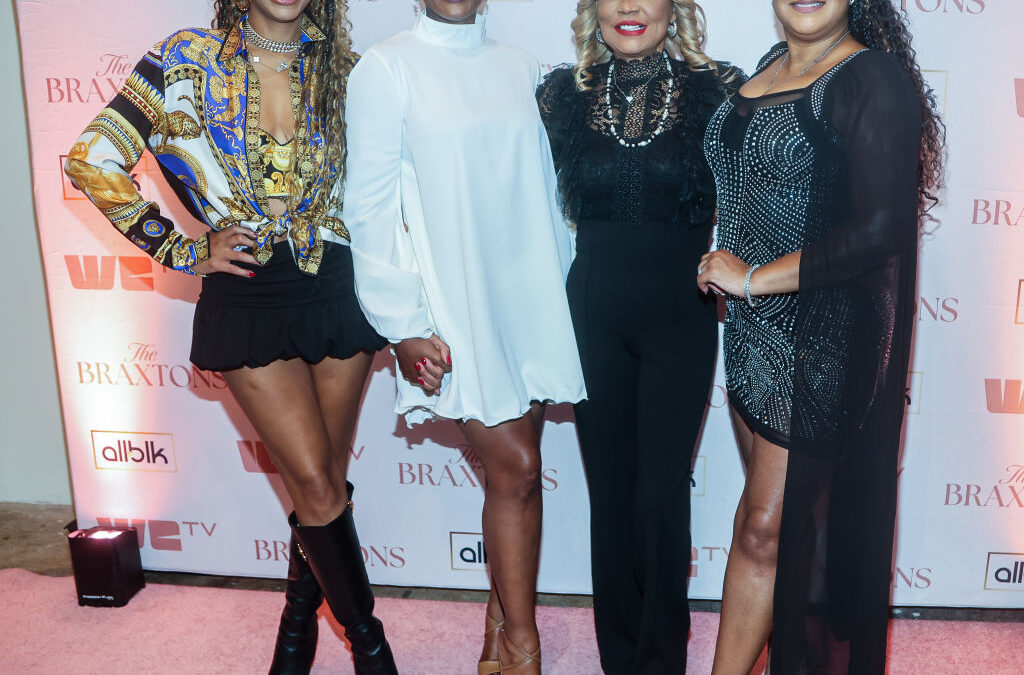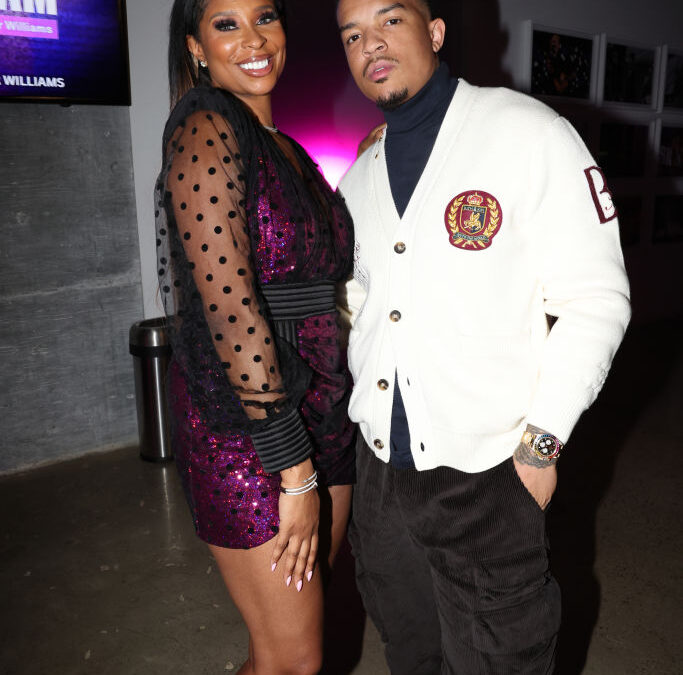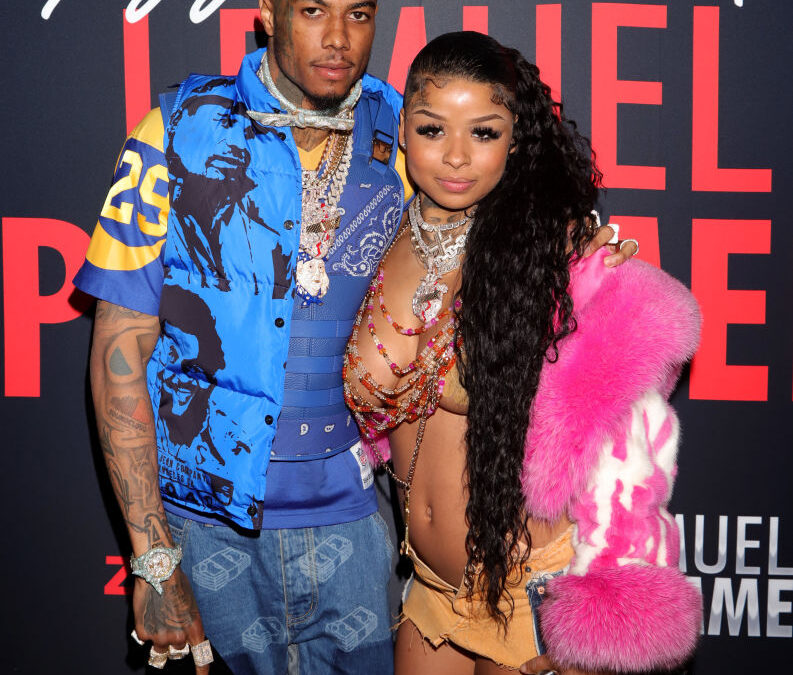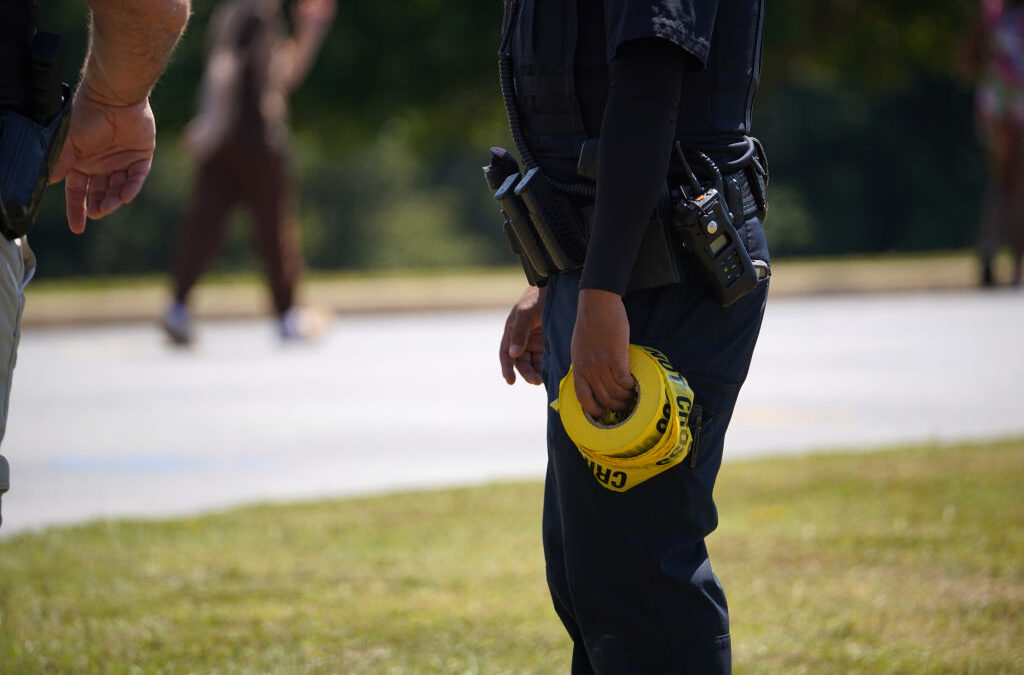For nearly a half-century, Black men have collectively used electric clippers instead of traditional shaving razors that would often cause hyperpigmentation, unsightly bumps, skin irritation, and grooming anxiety.
According to data provided by Gillette, 29% of Black men claim they are either very or extremely bothered by razor bumps when wet shaving compared to only 16% for other men which can be attributed to the unique genetics of darker skin tones.
The naturally coarse or curly hair follicles can curve into melanin-rich skin causing painful ingrown hairs and razor bumps on the skin.
Knowing this, Black Gillette employees (who were proud of the company’s products but had never been able to use the razors) voiced the need for a product that addressed their shaving needs and the rest is history.
With help from those employees and a Boston-area fireman (required to shave regularly as part of safety protocol), Gillette’s R&D team was able to develop the innovative SkinGuard line that would become the company’s first razor to clinically decrease razor bumps on darker skin.
To accomplish this, the razor was formatted with a patented irritation defense bar “allowing blades to remove hair while barely touching the skin, optimally spaced low-cutting force blades to protect against ingrown hairs, and enhanced lubrication protecting skin from irritation.”
In a 12-week clinical trial where Black men shaved using a SkinGuard razor five times a week, Gillette reports that they reduced the occurrence of razor bumps by 61%.
Proud of Gillette’s culturally inclusive innovation, Grooming Brand Director at Procter & Gamble, Kalasi Huggins, took us through the moment where Black Gillette employees made history and more in our interview below.
BOSSIP: Take me through that moment when SkinGuard was manifested at the company.
Kalasi Huggins:
Yes, definitely. So we have employee resource groups and we’re super proud in Boston to have a long standing tradition of our African ancestry employees from all over the globe, whether it’s African American or different African nations, the Caribbean, etc. in our organization working together not only to impact the Black community in Boston, locally, but also to make a difference in recruitment, talent development, etc.
And the group is called AALG (African Ancestry Leadership Group) and in our sessions we have direct lines to the highest levels of the company and the employees. So, these are employees that span multiple functions. You have engineers, you have finance people etc. and a few of them said, ‘I love this company, love this brand, love this business. It’s changed my life and everything that we have going on has been great for me but I haven’t really got into a habit of using some of our most premium products. And, you know, I’m using something else in our portfolio. I always get bumps and breakouts when I use our five bladed razors specifically and not necessarily having the same issues with our disposable products, etc. our safety razors or single blades.’
And that generated a plethora of actions to do something different because there is the benefit of when you have a five bladed razor it’s super, super close but that closeness doesn’t work for everyone.
So that’s where Gillette SkinGuard comes into play and we launched it in 2019. It’s a clinically proven razor for sensitive skin and in our clinical testing, it could help reduce the occurrence of bumps by up to 60%.
And that was something that, in that moment, we took the insight from employees and said, ‘you know, this part of our portfolio, our systems razors are designed for something that delights a lot of men but causes issues for others. Let’s do something different.’ And Gillette SkinGuard was born.
And now with our updates and relaunch of SkinGuard, it’s about adding the complementary regent to that. So Gillette SkinGuard gel moisturizer and face scrub all work together to help prevent ingrown hairs, razor bumps, and shaving irritation that was funnel management.
What was the initial reaction of management to the employee feedback?
Sometimes I look around and I’m lucky and happy to be in the corporate environment that I am versus others. The reaction was generally positive and there was a bias to go act right away. Our Founder of Gillette, King C. Gillette–one of his hallmark statements that we still have on the walls of our building is, ‘we’ll stop making razors when we can’t find a way to make them better.’
Innovation is in our lifeblood in this building and any opportunity to make the razor better, we take it, our leadership takes it seriously and they act on it right away.
There’s a lot of competition right now in this marketplace. Why is Gillette so confident in this product? What makes this product worthy of the push it’s going to get in the coming months?
This is clinically proven and it works and competition is good when you have an environment that’s more competitive. It means that there’s a broader awareness of specific issues or skin conditions, a broader awareness of the needs of specific consumers, which creates a great environment for us to communicate the benefits of our products.
Our razor not only is clinically proven but our gel, the SkinGuard gel, moisturizer and face scrub are clinically tested for sensitive skin. And as a complete regimen, we have data and we also have consumers that message us saying that it works, it feels different, and it helps to alleviate those bumps and ingrown.
So in this environment, we are very confident that based on what consumers have told us over the past since 2018, 2019 when we first launched the razor, and what we’re hearing now with the full regimen that we have something that’s making a difference and improving the quality of life for men who have previously suffered from those bumps and issues.
I’m sure you have initiatives to reach a younger Black demo like myself who exclusively uses clippers. Are you going to be at NCAA events or do more HBCU outreach? What’s the conversation around that?
Yeah, absolutely. So I am extremely excited to talk about this because it’s critically important to us, our business, and how we serve consumers and make a difference in their lives.
I point to a few things that come to mind immediately: HBCUs–we have activated in partnership with our parent company Proctor & Gamble with a few HBCUs.
Obviously there’s product sampling, there’s product education but it’s engaging with students during the first few weeks of campus to make sure we get to a strong start engaging with them at those culturally important moments in college life.
Whether it’s the Homecomings, the Classics, the Fraternity/Sorority events, and ensuring that we have an authentic presence–I’m extremely proud of that work. We’re continuing it, it’s going into its second year. We have local activations. Cincinnati Music Festival, we’ve done partnerships and engagements there. We have also partnered with people in the local Boston community [through initiatives like] ‘Being Black In Boston’–a new partnership for us coming up this year.
And we’ve partnered with a plethora of organizations with the goal of making sure that we serve consumers first and also introduce the benefits of our products thereafter.
The post Black Gillette Employees Pushed For A Culturally Inclusive Shaving Product That Decreases Razor Bumps, Here’s What Happened Next [Exclusive] appeared first on Bossip.
For nearly a half-century, Black men have collectively used electric clippers instead of traditional shaving razors that would often cause hyperpigmentation, unsightly bumps, skin irritation, and grooming anxiety.
According to data provided by Gillette, 29% of Black men claim they are either very or extremely bothered by razor bumps when wet shaving compared to only 16% for other men which can be attributed to the unique genetics of darker skin tones.
The naturally coarse or curly hair follicles can curve into melanin-rich skin causing painful ingrown hairs and razor bumps on the skin.
Knowing this, Black Gillette employees (who were proud of the company’s products but had never been able to use the razors) voiced the need for a product that addressed their shaving needs and the rest is history.
With help from those employees and a Boston-area fireman (required to shave regularly as part of safety protocol), Gillette’s R&D team was able to develop the innovative SkinGuard line that would become the company’s first razor to clinically decrease razor bumps on darker skin.
To accomplish this, the razor was formatted with a patented irritation defense bar “allowing blades to remove hair while barely touching the skin, optimally spaced low-cutting force blades to protect against ingrown hairs, and enhanced lubrication protecting skin from irritation.”
In a 12-week clinical trial where Black men shaved using a SkinGuard razor five times a week, Gillette reports that they reduced the occurrence of razor bumps by 61%.
Proud of Gillette’s culturally inclusive innovation, Grooming Brand Director at Procter & Gamble, Kalasi Huggins, took us through the moment where Black Gillette employees made history and more in our interview below.
BOSSIP: Take me through that moment when SkinGuard was manifested at the company.
Kalasi Huggins:
Yes, definitely. So we have employee resource groups and we’re super proud in Boston to have a long standing tradition of our African ancestry employees from all over the globe, whether it’s African American or different African nations, the Caribbean, etc. in our organization working together not only to impact the Black community in Boston, locally, but also to make a difference in recruitment, talent development, etc.
And the group is called AALG (African Ancestry Leadership Group) and in our sessions we have direct lines to the highest levels of the company and the employees. So, these are employees that span multiple functions. You have engineers, you have finance people etc. and a few of them said, ‘I love this company, love this brand, love this business. It’s changed my life and everything that we have going on has been great for me but I haven’t really got into a habit of using some of our most premium products. And, you know, I’m using something else in our portfolio. I always get bumps and breakouts when I use our five bladed razors specifically and not necessarily having the same issues with our disposable products, etc. our safety razors or single blades.’
And that generated a plethora of actions to do something different because there is the benefit of when you have a five bladed razor it’s super, super close but that closeness doesn’t work for everyone.
So that’s where Gillette SkinGuard comes into play and we launched it in 2019. It’s a clinically proven razor for sensitive skin and in our clinical testing, it could help reduce the occurrence of bumps by up to 60%.
And that was something that, in that moment, we took the insight from employees and said, ‘you know, this part of our portfolio, our systems razors are designed for something that delights a lot of men but causes issues for others. Let’s do something different.’ And Gillette SkinGuard was born.
And now with our updates and relaunch of SkinGuard, it’s about adding the complementary regent to that. So Gillette SkinGuard gel moisturizer and face scrub all work together to help prevent ingrown hairs, razor bumps, and shaving irritation that was funnel management.
What was the initial reaction of management to the employee feedback?
Sometimes I look around and I’m lucky and happy to be in the corporate environment that I am versus others. The reaction was generally positive and there was a bias to go act right away. Our Founder of Gillette, King C. Gillette–one of his hallmark statements that we still have on the walls of our building is, ‘we’ll stop making razors when we can’t find a way to make them better.’
Innovation is in our lifeblood in this building and any opportunity to make the razor better, we take it, our leadership takes it seriously and they act on it right away.
There’s a lot of competition right now in this marketplace. Why is Gillette so confident in this product? What makes this product worthy of the push it’s going to get in the coming months?
This is clinically proven and it works and competition is good when you have an environment that’s more competitive. It means that there’s a broader awareness of specific issues or skin conditions, a broader awareness of the needs of specific consumers, which creates a great environment for us to communicate the benefits of our products.
Our razor not only is clinically proven but our gel, the SkinGuard gel, moisturizer and face scrub are clinically tested for sensitive skin. And as a complete regimen, we have data and we also have consumers that message us saying that it works, it feels different, and it helps to alleviate those bumps and ingrown.
So in this environment, we are very confident that based on what consumers have told us over the past since 2018, 2019 when we first launched the razor, and what we’re hearing now with the full regimen that we have something that’s making a difference and improving the quality of life for men who have previously suffered from those bumps and issues.
I’m sure you have initiatives to reach a younger Black demo like myself who exclusively uses clippers. Are you going to be at NCAA events or do more HBCU outreach? What’s the conversation around that?
Yeah, absolutely. So I am extremely excited to talk about this because it’s critically important to us, our business, and how we serve consumers and make a difference in their lives.
I point to a few things that come to mind immediately: HBCUs–we have activated in partnership with our parent company Proctor & Gamble with a few HBCUs.
Obviously there’s product sampling, there’s product education but it’s engaging with students during the first few weeks of campus to make sure we get to a strong start engaging with them at those culturally important moments in college life.
Whether it’s the Homecomings, the Classics, the Fraternity/Sorority events, and ensuring that we have an authentic presence–I’m extremely proud of that work. We’re continuing it, it’s going into its second year. We have local activations. Cincinnati Music Festival, we’ve done partnerships and engagements there. We have also partnered with people in the local Boston community [through initiatives like] ‘Being Black In Boston’–a new partnership for us coming up this year.
And we’ve partnered with a plethora of organizations with the goal of making sure that we serve consumers first and also introduce the benefits of our products thereafter.
The post Black Gillette Employees Pushed For A Culturally Inclusive Shaving Product That Decreases Razor Bumps, Here’s What Happened Next [Exclusive] appeared first on Bossip.
For nearly a half-century, Black men have collectively used electric clippers instead of traditional shaving razors that would often cause hyperpigmentation, unsightly bumps, skin irritation, and grooming anxiety.
According to data provided by Gillette, 29% of Black men claim they are either very or extremely bothered by razor bumps when wet shaving compared to only 16% for other men which can be attributed to the unique genetics of darker skin tones.
The naturally coarse or curly hair follicles can curve into melanin-rich skin causing painful ingrown hairs and razor bumps on the skin.
Knowing this, Black Gillette employees (who were proud of the company’s products but had never been able to use the razors) voiced the need for a product that addressed their shaving needs and the rest is history.
With help from those employees and a Boston-area fireman (required to shave regularly as part of safety protocol), Gillette’s R&D team was able to develop the innovative SkinGuard line that would become the company’s first razor to clinically decrease razor bumps on darker skin.
To accomplish this, the razor was formatted with a patented irritation defense bar “allowing blades to remove hair while barely touching the skin, optimally spaced low-cutting force blades to protect against ingrown hairs, and enhanced lubrication protecting skin from irritation.”
In a 12-week clinical trial where Black men shaved using a SkinGuard razor five times a week, Gillette reports that they reduced the occurrence of razor bumps by 61%.
Proud of Gillette’s culturally inclusive innovation, Grooming Brand Director at Procter & Gamble, Kalasi Huggins, took us through the moment where Black Gillette employees made history and more in our interview below.
BOSSIP: Take me through that moment when SkinGuard was manifested at the company.
Kalasi Huggins:
Yes, definitely. So we have employee resource groups and we’re super proud in Boston to have a long standing tradition of our African ancestry employees from all over the globe, whether it’s African American or different African nations, the Caribbean, etc. in our organization working together not only to impact the Black community in Boston, locally, but also to make a difference in recruitment, talent development, etc.
And the group is called AALG (African Ancestry Leadership Group) and in our sessions we have direct lines to the highest levels of the company and the employees. So, these are employees that span multiple functions. You have engineers, you have finance people etc. and a few of them said, ‘I love this company, love this brand, love this business. It’s changed my life and everything that we have going on has been great for me but I haven’t really got into a habit of using some of our most premium products. And, you know, I’m using something else in our portfolio. I always get bumps and breakouts when I use our five bladed razors specifically and not necessarily having the same issues with our disposable products, etc. our safety razors or single blades.’
And that generated a plethora of actions to do something different because there is the benefit of when you have a five bladed razor it’s super, super close but that closeness doesn’t work for everyone.
So that’s where Gillette SkinGuard comes into play and we launched it in 2019. It’s a clinically proven razor for sensitive skin and in our clinical testing, it could help reduce the occurrence of bumps by up to 60%.
And that was something that, in that moment, we took the insight from employees and said, ‘you know, this part of our portfolio, our systems razors are designed for something that delights a lot of men but causes issues for others. Let’s do something different.’ And Gillette SkinGuard was born.
And now with our updates and relaunch of SkinGuard, it’s about adding the complementary regent to that. So Gillette SkinGuard gel moisturizer and face scrub all work together to help prevent ingrown hairs, razor bumps, and shaving irritation that was funnel management.
What was the initial reaction of management to the employee feedback?
Sometimes I look around and I’m lucky and happy to be in the corporate environment that I am versus others. The reaction was generally positive and there was a bias to go act right away. Our Founder of Gillette, King C. Gillette–one of his hallmark statements that we still have on the walls of our building is, ‘we’ll stop making razors when we can’t find a way to make them better.’
Innovation is in our lifeblood in this building and any opportunity to make the razor better, we take it, our leadership takes it seriously and they act on it right away.
There’s a lot of competition right now in this marketplace. Why is Gillette so confident in this product? What makes this product worthy of the push it’s going to get in the coming months?
This is clinically proven and it works and competition is good when you have an environment that’s more competitive. It means that there’s a broader awareness of specific issues or skin conditions, a broader awareness of the needs of specific consumers, which creates a great environment for us to communicate the benefits of our products.
Our razor not only is clinically proven but our gel, the SkinGuard gel, moisturizer and face scrub are clinically tested for sensitive skin. And as a complete regimen, we have data and we also have consumers that message us saying that it works, it feels different, and it helps to alleviate those bumps and ingrown.
So in this environment, we are very confident that based on what consumers have told us over the past since 2018, 2019 when we first launched the razor, and what we’re hearing now with the full regimen that we have something that’s making a difference and improving the quality of life for men who have previously suffered from those bumps and issues.
I’m sure you have initiatives to reach a younger Black demo like myself who exclusively uses clippers. Are you going to be at NCAA events or do more HBCU outreach? What’s the conversation around that?
Yeah, absolutely. So I am extremely excited to talk about this because it’s critically important to us, our business, and how we serve consumers and make a difference in their lives.
I point to a few things that come to mind immediately: HBCUs–we have activated in partnership with our parent company Proctor & Gamble with a few HBCUs.
Obviously there’s product sampling, there’s product education but it’s engaging with students during the first few weeks of campus to make sure we get to a strong start engaging with them at those culturally important moments in college life.
Whether it’s the Homecomings, the Classics, the Fraternity/Sorority events, and ensuring that we have an authentic presence–I’m extremely proud of that work. We’re continuing it, it’s going into its second year. We have local activations. Cincinnati Music Festival, we’ve done partnerships and engagements there. We have also partnered with people in the local Boston community [through initiatives like] ‘Being Black In Boston’–a new partnership for us coming up this year.
And we’ve partnered with a plethora of organizations with the goal of making sure that we serve consumers first and also introduce the benefits of our products thereafter.
Comments
Bossip Comment Policy
Please read our Comment Policy before commenting.
Procter & Gamble’s Grooming Brand Director Kalasi Huggins talks Gillette’s innovative SkinGuard product championed by Black employees.
The post Black Gillette Employees Pushed For A Culturally Inclusive Shaving Product That Decreases Razor Bumps, Here’s What Happened Next [Exclusive] appeared first on Bossip. Bossip




